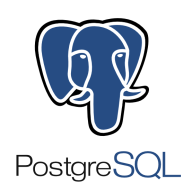

PostgreSQL and Oracle MySQL Cloud Service are key competitors in the database solutions market. PostgreSQL is often seen as having the upper hand due to its comprehensive feature set and cost-effectiveness derived from its open-source nature.
Features: PostgreSQL is renowned for its support of complex queries, strong SQL standards compliance, and reliability across a range of environments. It offers extensive language support and is fully ACID compliant, making it well-suited for organizations requiring robust transaction handling. Conversely, Oracle MySQL Cloud Service is distinguished by its multiple storage engine capabilities, providing flexible data storage, and its architecture allows for rapid query processing ideal for speed-focused applications.
Room for Improvement: PostgreSQL can be less efficient in handling a high volume of records and may struggle with certain SQL queries MySQL manages well. Additionally, it can be slower with read-only queries. MySQL benefits from enhancements in cloud scalability and would be more versatile with additional out-of-the-box features. Improving support for advanced features could augment MySQL's appeal.
Ease of Deployment and Customer Service: PostgreSQL's deployment is versatile across on-premises, hybrid, and cloud environments, supported by a substantial community. However, its reliance on community support can vary in effectiveness. Oracle MySQL Cloud Service offers streamlined cloud deployment options and established technical support, appealing to organizations that prioritize dedicated assistance.
Pricing and ROI: PostgreSQL offers significant cost advantages due to its open-source nature, eliminating licensing fees and offering favorable ROI for startups and cost-conscious enterprises. Oracle MySQL Cloud Service, while more expensive due to licensing, justifies costs with strong performance and reliability, which can enhance ROI in performance-critical scenarios.
| Product | Market Share (%) |
|---|---|
| PostgreSQL | 16.6% |
| Oracle MySQL Cloud Service | 0.6% |
| Other | 82.8% |


| Company Size | Count |
|---|---|
| Small Business | 8 |
| Midsize Enterprise | 2 |
| Large Enterprise | 11 |
| Company Size | Count |
|---|---|
| Small Business | 58 |
| Midsize Enterprise | 26 |
| Large Enterprise | 45 |
Oracle MySQL Cloud Service delivers a secure, cost-effective and enterprise-grade MySQL database service. Built on MySQL Enterprise Edition and powered by the Oracle Cloud, it provides a simple, automated, integrated and enterprise ready MySQL cloud service, enabling organizations to increase business agility and reduce costs.
PostgreSQL is a versatile and reliable database management system commonly used for web development, data analysis, and building scalable databases.
It offers advanced features like indexing, replication, and transaction management. Users appreciate its flexibility, performance, and ability to handle large amounts of data efficiently. Its robustness, scalability, and support for complex queries make it highly valuable.
Additionally, PostgreSQL's extensibility, flexibility, community support, and frequent updates contribute to its ongoing improvement and stability.
We monitor all Open Source Databases reviews to prevent fraudulent reviews and keep review quality high. We do not post reviews by company employees or direct competitors. We validate each review for authenticity via cross-reference with LinkedIn, and personal follow-up with the reviewer when necessary.